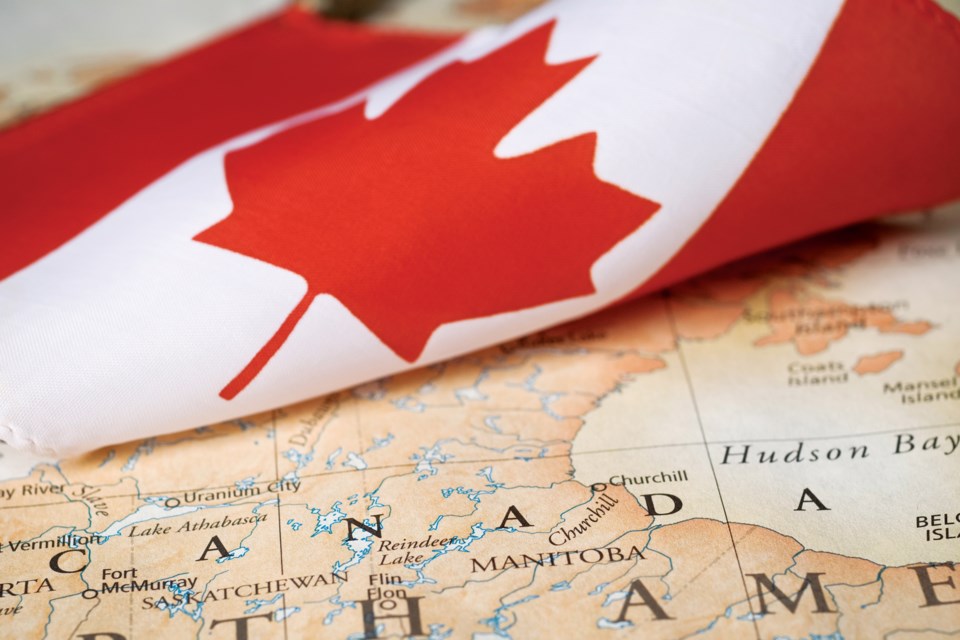First Nations leaders say a silver lining to the “rhetoric and insanity” brought about by talks of Alberta separatism has united Indigenous communities “all across Canada, from coast to coast to coast.”
Piikani Nation Chief Troy Knowlton said Alberta First Nations are gearing up for a fight with Alberta Premier Danielle Smith.
“We're not going anywhere and if you feel that you have problems with First Nations, you could leave,” Knowlton said.
Smith said this week she doesn’t want Alberta to leave Canada but promised to hold a referendum on provincial separation in 2026 if citizens gather the required signatures on a petition.
Smith’s government also recently tabled legislation to make it easier for citizens to trigger a provincial referendum, lowering the required signatures from 20 per cent of registered voters to 10 per cent and granting an extra month to collect signatures.
The backlash from First Nations leaders was swift — they pointed out Alberta is on Treaty 6, 7 and 8 land, and those treaty agreements are with the federal government, not the province.
“This is treaty country, and any talk of separation is really insanity,” Knowlton said at an emergency meeting convened by First Nations leaders on May 6 in Edmonton.
The Federation of Sovereign Indigenous Nations, which represents 74 First Nations in Saskatchewan, said Smith's proposal to lower signature thresholds for citizen-initiated referendums — which could more easily lead to a vote on separation — fundamentally ignores the nation-to-nation treaties signed between First Nations and the Crown.
This was echoed by other leaders, including Mikisew Cree First Nation Chief Billy-Joe Tuccaro and Athabasca Chipewyan First Nation Chief Allan Adam, who said any move in that direction would have immediate consequences for development in the province.
“If Alberta wants to separate, and doesn't want to be part of Canada, then you're not allowed on our traditional territories anymore for exploration, because we don't know who you're exploring for,” Adam said.
In response to questions about a separation referendum’s impact on treaty rights, Smith said she will have to wait until a citizen referendum proceeds to make any judgments about treaty rights. The ambiguity of her response did not quell concerns.
“Whether or not this rhetoric is real, you're upsetting a relationship that has been years in the making,” Gabrielle Slowey, a political science professor at York University, told Canada’s National Observer in a phone interview.
“Historically, Alberta technically had a fairly good relationship with Indigenous groups compared to other regions in Canada. So, for the premier to be doing this … I'm not sure I see the value or the logic in it.”
Slowey is surprised the Canadian Association of Petroleum Producers and resource extraction companies aren’t intervening because Smith is potentially triggering the sort of instability that markets hate, after years of building agreements with communities to create a stable investment environment.
“Alberta's worked really hard, and Danielle Smith's threats are undoing all of that,” Slowey said.
Adam’s call for no more resource exploration amidst talk of separation is exhibit A.
“That's gonna send a shiver and a chill that people don't need, not at this time when we're supposed to be building all these nationalist projects,” Slowey said.
The resounding message from First Nations leaders this week is that they are gearing up for a fight.
“For the last 50 years, we've been in defense of our rights, of our land, our jurisdiction, our identity,” Knowlton said.
“We're very prepared. Today, every one of the First Nations you see here, we've got doctors, we've got lawyers, we've got judges, we've got Crown prosecutors. We're ready. We're ready for a fight. We’ve got resources that we can either share or utilize ourselves for any litigation moving forward and any challenges we're going to have.”
This issue of separation referendums and treaty rights has played out before, when Quebec held its 1995 referendum, Slowey noted.
To highlight their opposition to Quebec secession, the Grand Council of the Crees of Quebec held a separate referendum at the time to underscore their long-standing opposition to Quebec separating from Canada. Cree voters were asked: "Do you consent, as a people, that the Government of Quebec separate the James Bay Crees and Cree traditional territory from Canada in the event of a Yes vote in the Quebec referendum?"
An overwhelming 96.3 per cent — with 77 per cent voter turnout — voted to stay with Canada. The Inuit of Northern Quebec held a similar referendum with 96 per cent of voters opposing Quebec’s secession.
Now, in 2025, First Nations leaders in Alberta are hammering home the same message.
Tuccaro, Mikisew Cree First Nation Chief, had some words specifically for Smith: “You will not do what you want without the approval of the treaty people. You talk about a reset with Canada. You must reset with the Indigenous Peoples from Turtle Island.”




